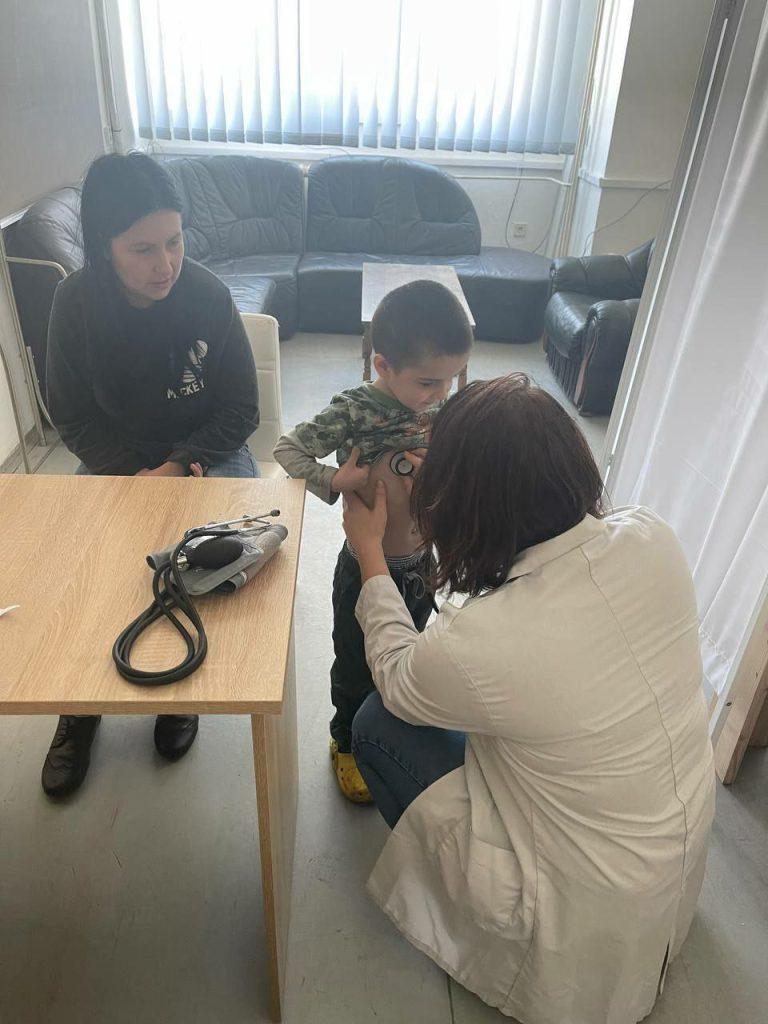ShowUp4Health. Building Trust in Roma Communities and Internally Displaced People for NCD Prevention
Since 2024, the “InterFamily” clinic of the family medicine has been participating in the international ShowUp4Health project, which aims to address the social and environmental determinants of health that contribute to an increased risk of non-communicable diseases in vulnerable groups, including Roma communities and internally displaced persons. The ShowUp4Health partnership consists of five countries: Hungary, Bulgaria, Romania, Slovenia and Ukraine.

Social and environmental health determinants impact the health ecosystem of vulnerable groups
In Central and Eastern Europe, Roma communities are among the most vulnerable and segregated groups. Cultural characteristics, poverty, and a distrust of systemic structures lead Roma groups to face widespread health inequalities, such as low health literacy and a low willingness to adhere to medical protocols. These health determinants then directly contribute to the Roma community’s increased risk for developing non-communicable diseases (NCDs).
ShowUp4Health believes that communities that synergise medical and social interventions can use this as a tool to build trust and facilitate higher levels of health literacy in vulnerable groups like the Roma. Cross-sectoral partnerships of stakeholders in support of vulnerable communities can also bring expertise, cooperation and resources to address complex NCD strands.
The general objective of ShowUp4Health aims to address social and environmental health determinants, which contribute to the increased risk of NCDs in vulnerable groups (primarily Roma communities and secondarily internally displaced people (IDPs)).

The overall goal of ShowUp4Health is to address the social and environmental determinants of health that contribute to the increased risk of NCDs among IDPs.
The specific objectives of ShowUp4Health are as follows:
- Decrease health inequalities in vulnerable groups (i.e., Roma communities) focusing on the combination of social and environmental health determinants through the targeting of the entire patient pathway in NCD prevention.
- Bridge the fields of social work and healthcare within a single Integrated Social-Healthcare Methodology to establish trust, facilitate health literacy, and build adherence to health protocols within vulnerable groups.-Understand the adaptability of the Integrated Social-Healthcare Methodology in reducing health inequalities within other vulnerable groups in Europe.
Results
Short-term impact:
- More effective communication on NCDs and healthy lifestyles among vulnerable populations in the pilot regions.
- More vulnerable people participate in NCD screening.
- More vulnerable people with high NCD risk factors and NCDs (cardiovascular diseases, diabetes, chronic respiratory diseases and mental disorders (in Ukraine)) will be identified and referred to specialists for treatment.
- More vulnerable people with medical discipline of follow-up and adherence to medication.
- More balanced work of health care workers.
- Increased knowledge and sensitivity among both medical and social workers.
- Improved public health.

Medium-term perspective (3-5 years):
- The integrated methodology is adopted in all locations where beneficiary organizations operate.
- The integrated methodology is adopted by other civil society organizations in the pilot countries.
- The medical intermediary as a new or expanded role is integrated into the health care system of the pilot countries.
- Strengthening of national health care systems in Hungary, Romania, Bulgaria, Slovenia, and Ukraine.
- Improved public health in partner Member States.
- Start of transformation into a more integrated social and health care system.
- Uniform methodology adopted for NCD screening (description of the process, testing, standards, type of test required) by national authorities in Hungary, Romania, Bulgaria, Slovenia, Ukraine.
- Integrated methodology adopted by NGOs working with other vulnerable populations in other EU member states.
Long-term impact (10-15 years):
- Improved health indicators for vulnerable populations in Hungary, Romania, Bulgaria, Slovenia, and Ukraine.
- Improved social determinants of health of vulnerable populations in Hungary, Romania, Bulgaria, Slovenia, Ukraine.
ShowUp4Health Project Page
Coordinator
Hungarian Charity Service of Order of Malta, HCSOM,
1125 Szarvas Gábor út 58-60. Budapest, Hungary
Website: https://maltai.hu Email: [email protected]
Events report table


